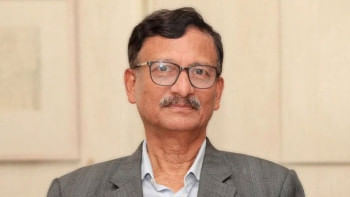Tapping the potential of our youth

Many oil-rich countries like Norway, United Arab Emirates and Brunei have put billions of US dollars into Sovereign Wealth Funds through which they invest in interest-bearing assets around the world, either enhancing the amount in the fund, or for subsidising costs of selected services for their own citizens.
Bangladesh has the potential to develop its own sovereign wealth assets over the coming decades if we are able to make strategic investment in these potential assets and enable them to give significant returns on our investment.
I am not referring to money but rather to the potential of our young girls and boys, especially those who will be studying at universities in the coming years.
Bangladesh now has over a hundred universities stretched across both the public and private sectors. This means that we have hundreds of thousands of boys and girls studying at these universities every year.
Although the quality of the universities may vary a lot, the potential of each student is no less than his or her counterpart in other countries, including developed countries. They have the same intelligence, energy and enthusiasm for learning.
Thus Bangladesh has the potential to harvest this demographic dividend if we are able to not just educate them but also make them realise their full potential.
I will describe below some of the ways in which we can do so.
Firstly, I will argue that even though we must invest in both girls and boys, the emphasis should be more on girls. As the African proverb has it: "If you educate a man you educate an individual, but if you educate a woman you educate a family (nation)."
Secondly, we need to rapidly enhance the quality of education provided in our universities and change our emphasis from rote learning aimed at answering examination questions only. The new kind of quality education needs to enhance creativity of students and unleash innovation in both students and teachers.
Thirdly, we need to inculcate a cultural shift away from job seeking to job creation amongst our students. This is perhaps the most difficult of the tasks but one that will allow the full returns on investments. Thus we need to teach and promote innovation and entrepreneurship amongst the best students.
Finally, there is a very strong climate change connection to educating and empowering our young girls and boys as they will be the ones who inherit a significantly changed climate from us adults and they will have to be the ones who clean up the mess we will be leaving for them.
For Bangladesh there is thus an urgent need to make our future citizens climate-resilient women and men who can tackle and indeed solve many of the problems that Bangladesh will inevitably face with climate change. By making our girls and boys climate-resilient problem-solvers, we will not only be able to tackle climate change in Bangladesh, but globally as well.
Saleemul Huq is Director, International Centre for Climate Change and Development at the Independent University, Bangladesh.
Email: saleem.icccad@iub.edu.bd











Comments